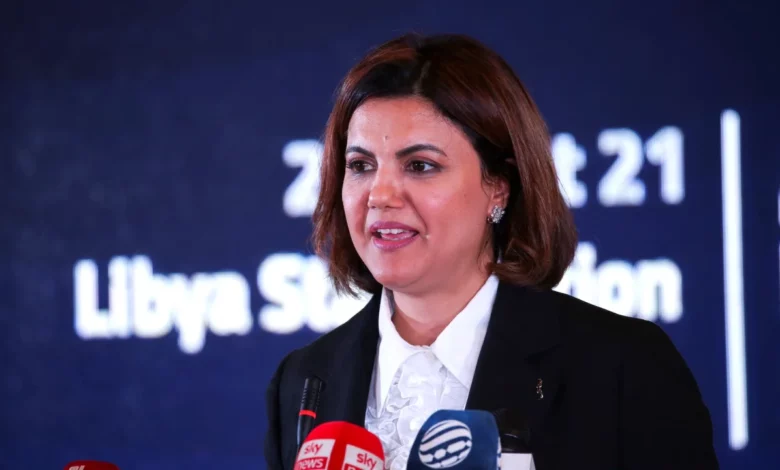
Israel’s foreign ministry announced on Sunday night that the meeting had taken place in Rome last week.
The Libyan foreign ministry rejected reports that the meeting was officially sanctioned and said in a statement that it was “informal,” “unprepared” and “did not include negotiations or consultations.”
It added that Mangoush “reaffirmed Libya’s principles towards the Palestinian cause in a clear and unambiguous manner.”
Libya does not have diplomatic relations with Israel, and normalization of ties remains a controversial issue in the country. Videos circulating on social media over the weekend showed Libyan protesters burning Israeli flags and attempting to enter the gates of a government building in Tripoli.
An Israeli source familiar with the situation appeared to dispute the Libyan account on Monday, saying the meeting with Foreign Minister Eli Cohen was planned, and news that it had taken place was supposed to be made public at some point. The source requested anonymity to discuss diplomatic issues.
The source said there were discussions before the ministers met about publishing the fact of the meeting, but that “the timing of when it would be published wasn’t agreed on yet.”
The Israeli foreign ministry published its statement Sunday in response to questions from an Israeli journalist who got word of the meeting and asked the ministry about it, the source said. Israel told Mangoush that was what had happened, the source said.
Cohen earlier called the meeting “historic” and described it as “the first step in the connections between Israel and Libya.”
“I spoke with the foreign minister about the vast potential for the two countries from their relations, as well as the importance of preserving the heritage of Libyan Jewry, which includes renovating synagogues and Jewish cemeteries in the country,” Cohen was cited as saying by Israel’s foreign ministry.
Libya has fallen into chaos since a NATO-backed uprising overthrew former ruler Moammar Gadhafi in 2011. The country has been split into two rival governments, one in Tripoli and one in Benghazi, since 2014.
The parliament backing the eastern-based government denounced Mangoush’s meeting with Cohen and called for a “harsh punishment.”
Mangoush was Libya’s first female foreign minister.




